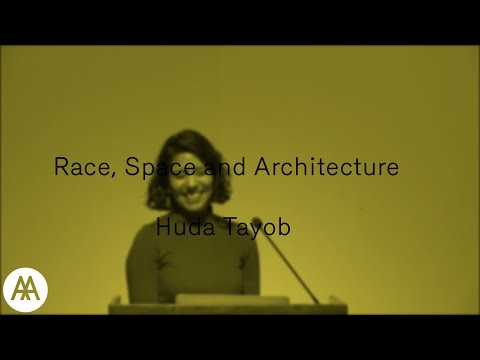
Architecture is a way of imagining, building and validating a world. Yet, it also constitutes the material forms and urban spaces in which individuals become positioned in a vast spectre of racial segregation. It is the concrete or corrugated iron of buildings, highways, suburbs and townships; the bricks and mortar which form the interior arrangements of culture in the positioning of thresholds; and the accumulation of these built forms and practices into social forms of association and dis-association. Architecture is also professionalised, existing as a highly mediated form of knowledge-making that interacts with speculators, planning authorities and local communities for its pay checks, compliance and legitimation. This lecture focuses on an open-access curriculum developed with Suzanne Hall (LSE), to unpack the subject of ‘race’ and its relationship to architecture. It questions how architecture might respond to the inventive repertoires of refusal, resistance and re-making that are neither reduced to nor exhausted by racial capitalism.
Huda Tayob is a lecturer and History & Theory Programme Convener at the Graduate School of Architecture, University of Johannesburg. She holds a PhD from the Bartlett School of Architecture, UCL for which she received a commendation for the RIBA President’s award for research in 2018. Her research interests include a focus on migrant, minor and subaltern architectures, the politics of invisibility, and the potential of literature to respond to archival silences in architectural research. Recent publications include ‘Subaltern Architectures: Can Drawing “tell” a different story?’ (2018, Architecture and Culture) and ‘Architecture-by-migrants: the porous infrastructures of Bellville’ (2019, Anthropology Southern Africa).